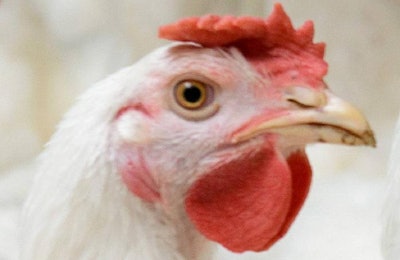
Over the past month, veterinary authorities in Cameroon, Ghana and Nigeria have reported new cases of highly pathogenic avian influenza (HPAI) caused by the H5N1 virus variant to the World Organisation for Animal Health (OIE). From Asia, there were similar reports from Taiwan and Vietnam.
Avian influenza outbreaks continue in Africa
After reporting the country’s first cases of HPAI for a decade in late May, Cameroon’s veterinary authority has confirmed a further 16 outbreaks in poultry over the last 4 weeks. Affected flocks included commercial broilers and ducks as well as a number of backyard and village birds, with the main geographical focus in the south and west of the country. More than 34,000 poultry died or were destroyed as a result of the latest outbreaks.
As reported previously, the affected region is the center of the poultry industry. With the government calling an immediate halt to sales of poultry products in the capital city, Yaoundé, and two states, farmers are struggling to stay in business.
Financial losses have reached XAF10 billion (US$16.9 million), according to a recent estimate in Business in Cameroon. In the latest in a series of protests by poultry producers about the sales ban, 14,000 hatching eggs broken and dumped outside the main agriculture ministry building last week.
Four new outbreaks of HPAI caused by the H5N1 subtype of the virus have occurred in Ghana recently, two in Greater Accra and one each in the states of Ashanti and Central. A total of 7,458 birds died or were destroyed, including layers and flocks of mixed ages and poultry species.
Nigeria has been troubled by the current wave of H5N1 HPAI since the start of 2015. The veterinary authority has reported just one new outbreak to the OIE – in a flock of 4,000 young pullets in the state of Lagos, which is in the south-west of the country and borders Benin.
One month ago, Niger belatedly reported to the OIE an outbreak of HPAI that had occurred in February. No further cases have been confirmed in the meantime.
Avian flu in Asia
A single new outbreak of HPAI of the H5N6 subtype has been reported to OIE from Vietnam. Around 700 birds in a backyard flock in the central western city of Quang Ngai died in early July, and a further 3,000 have been destroyed.
During the month of May, Taiwan’s veterinary authority reports, HPAI affected three poultry flocks, all of native chickens. Two were identified during testing at an abattoir in Taichung City, and the third outbreak was confirmed following abnormally high mortality in a flock of more than 13,000 chickens in the country of Yunlin. The H5N2 subtype of the virus was found in each outbreak.
Last week, Focus Taiwan reported a further outbreak of HPAI in a flock of geese in the Xinhua district of Tainan in the south of the country. More than 1,000 birds were culled after it was confirmed they were infected with what appears to be a new H5 variant of the avian flu virus.
China reported its first cases of HPAI caused by the H5N6 virus variant in September of 2014. One further outbreak occurred in June this year – at a farm of almost 30,000 birds in the Hunan province. Around 300 died and the rest have been destroyed.
In April, Myanmar reported its first HPAI outbreak for more than a year at a poultry complex at Monywa. Since then, there have been no further outbreaks reported. It has recently been confirmed that the cause was an H5N1 variant of the virus.















